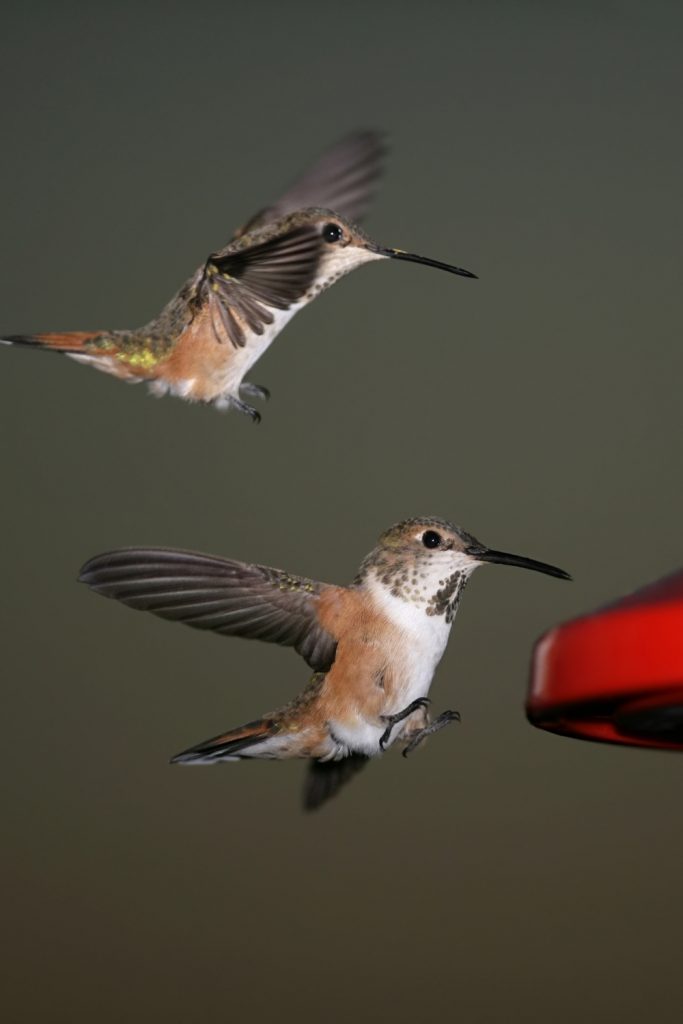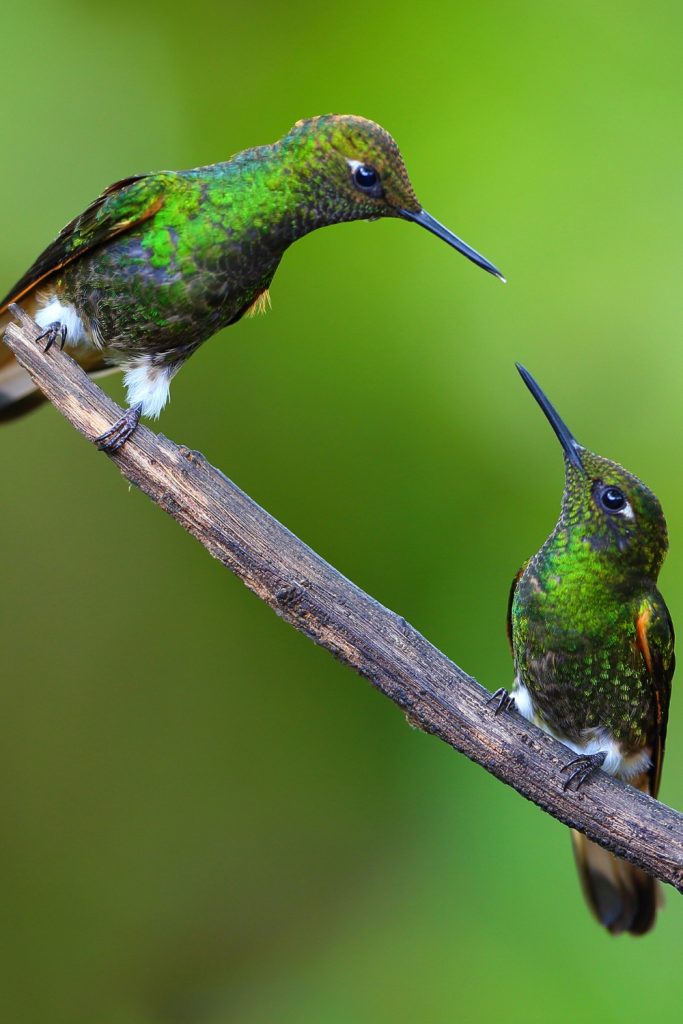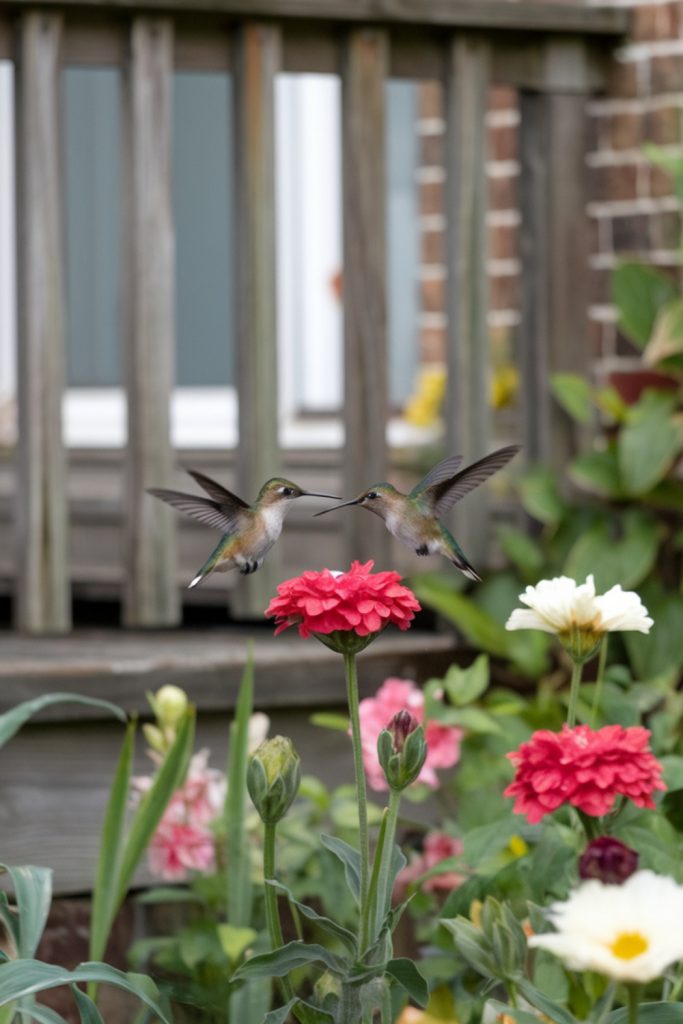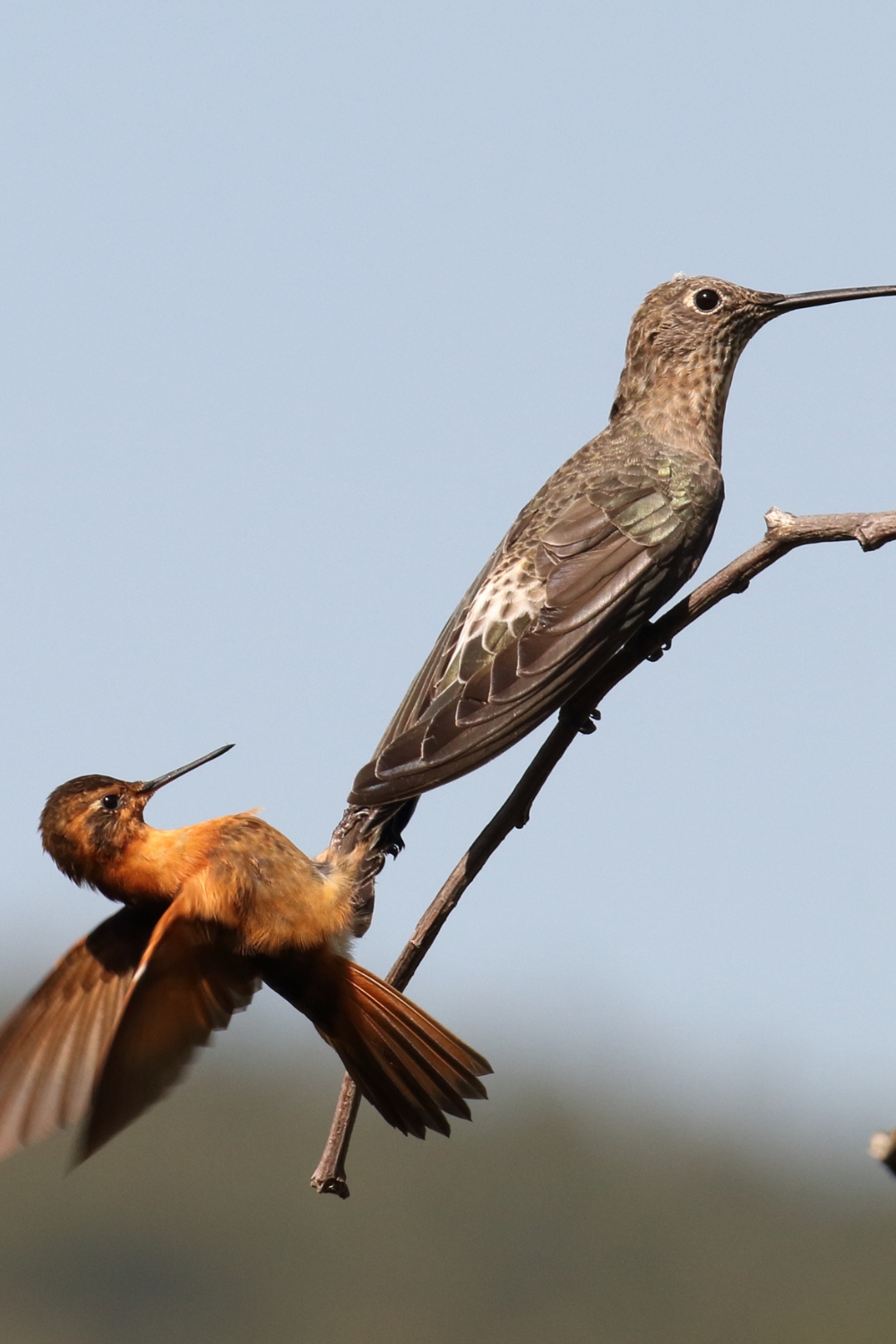Hummingbirds chase each other primarily to defend food sources and territory. This aggressive behaviour helps them secure vital nectar resources and breeding areas, which are essential for their survival given their high-energy needs.
Key Takeaways
- Hummingbirds defend territories1 that contain food sources and potential nesting2 sites
- Chasing peaks during dawn and dusk when feeding activity is highest
- A single hummingbird may chase away up to 200 intruders per day
- Males are most aggressive during breeding season.
Have you ever watched hummingbirds zipping around your backyard, suddenly breaking into what looks like an airborne game of tag? While it might seem playful, these aerial battles serve important survival purposes.
Types of Hummingbird Chases
| Type of Chase | Purpose | Typical Duration |
|---|---|---|
| Territorial | Defend food sources | 10-30 seconds |
| Courtship | Attract mates | 1-2 minutes |
| Play | Social interaction | Brief, sporadic |
Related Post: 25 Hummingbird Behaviors.

Why Hummingbirds Chase Each Other
1. Food Protection
Imagine if you had to eat 7 times your body weight in food every day just to survive – that’s what hummingbirds need to do! They vigorously defend:
- Prime feeding areas with abundant flowers
- Artificial nectar feeders
- Regular food sources essential for survival.
2. Breeding Territory Defense
During spring and summer, male hummingbirds become particularly aggressive because they:
- Chase away male competitors
- Protect areas with optimal nesting conditions
- Maintain exclusive access to female visitors.
3. Establishing Social Hierarchy
Just like in a middle school cafeteria, hummingbirds establish who’s boss through these chases to:
- Define boundaries between territories
- Resolve conflicts over resources
- Maintain dominance in local populations.

How to Reduce Territorial Behaviour
If you have hummingbird feeders in your yard, you can minimize aggressive chasing by:
- Setting up multiple feeders 10-12 feet apart
- Creating visual barriers between feeding stations
- Providing natural food sources through native flowers
- Maintaining consistent feeding schedules
- Installing several feeding stations in different areas.
Expert Tip
The most aggressive chasing occurs during dawn and dusk. Create separate ‘feeding zones’ with clusters of flowers or feeders at opposite ends of your yard to reduce territorial disputes.
Final Thoughts
While it might seem aggressive, chasing behaviour is essential for hummingbird survival. It helps them secure enough food and find the best mates. Next time you see these remarkable birds chasing each other, you’ll know they’re following important survival instincts that have helped their species thrive for millions of years.
Did you find this article interesting? Share it with other bird enthusiasts who might be wondering about the aerial acrobatics in their yards!

Frequently Asked Questions
Q: How long do hummingbird chases typically last?
A: Most territorial chases last between 10-30 seconds, though courtship chases may extend to 1-2 minutes.
Q: Do female hummingbirds chase other birds too?
A: Yes, females also engage in territorial defence, particularly around feeding and nesting sites.
Q: Can hummingbirds hurt each other when chasing?
A: While chasing is energetically costly, physical injuries are rare. These aerial battles are a natural part of their behaviour.
References:
